Related Research Articles

A think tank, or policy institute, is a research institute that performs research and advocacy concerning topics such as social policy, political strategy, economics, military, technology, and culture. Most think tanks are non-governmental organizations, but some are semi-autonomous agencies within government, and some are associated with particular political parties, businesses or the military. Think tanks are often funded by individual donations, with many also accepting government grants.
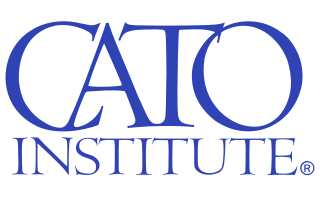
The Cato Institute is an American libertarian think tank headquartered in Washington, D.C. It was founded in 1977 by Ed Crane, Murray Rothbard, and Charles Koch, chairman of the board and chief executive officer of Koch Industries. Cato was established to focus on public advocacy, media exposure, and societal influence.
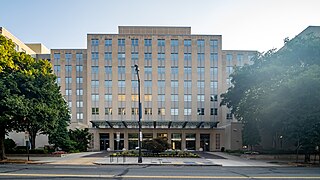
The Brookings Institution, often stylized as Brookings, is an American think tank that conducts research and education in the social sciences, primarily in economics, metropolitan policy, governance, foreign policy, global economy, and economic development.

The Institute for Public Policy Research (IPPR) is a progressive think tank based in London. It was founded in 1988 by Lord Hollick and Lord Eatwell, and is an independent registered charity. The think tank aims to maintain the momentum of progressive thought in the United Kingdom through well-researched and clearly argued policy analysis, reports, and publications; as well as a high media profile.

The Centre for Policy Studies (CPS) is a centre-right think tank and advocacy group in the United Kingdom. Its goal is to promote coherent and practical policies based on its founding principles of: free markets, "small state," low tax, national independence, self determination and responsibility. While being independent, the centre has historical links to the Conservative Party.
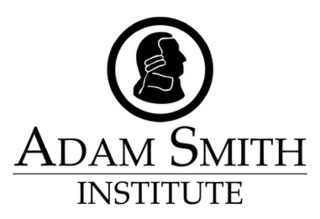
The Adam Smith Institute (ASI) is a UK-based neoliberal think tank and lobbying group, named after Adam Smith, a Scottish moral philosopher and classical economist. The Institute advocates free market and classical liberal ideas, primarily via the formation of policy options with regard to public choice theory, which political decision makers seek to develop upon. ASI President Madsen Pirie has sought to describe the activity of the organisation as "[w]e propose things which people regard as being on the edge of lunacy. The next thing you know, they're on the edge of policy".
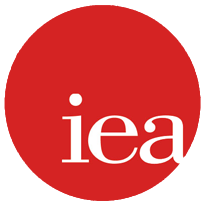
The Institute of Economic Affairs (IEA) is a right-wing, free market think tank registered as a UK charity. Associated with the New Right, the IEA describes itself as an "educational research institute" and says that it seeks to "further the dissemination of free-market thinking" by "analysing and expounding the role of markets in solving economic and social problems". The IEA is the oldest free market think-tank in the UK and was established to promote free-market responses to economic challenges by targeting influential academics and journalists, as well as students, in order to propagate these ideas widely. Adopting as its credo FA Hayek's view that "yesterday's dissent becomes today's consensus," the IEA says that it prioritises producing work with a focus on economic insights over partisan politics.
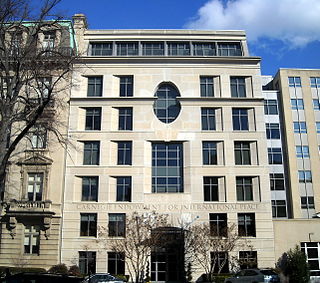
The Carnegie Endowment for International Peace (CEIP) is a nonpartisan international affairs think tank headquartered in Washington, D.C., with operations in Europe, South and East Asia, and the Middle East as well as the United States. Founded in 1910 by Andrew Carnegie, the organization describes itself as being dedicated to advancing cooperation between countries, reducing global conflict, and promoting active international engagement between the United States and countries around the world. It engages leaders from multiple sectors and across the political spectrum.

The Fraser Institute is a libertarian-conservative Canadian public policy think tank and registered charity. It is headquartered in Vancouver, with additional offices in Calgary, Toronto, and Montreal. It has links to think tanks worldwide through the Economic Freedom Network and is a member of the free-market Atlas Network.
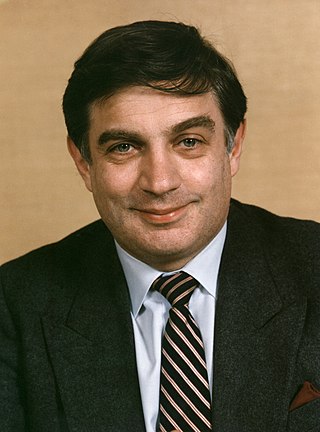
Peter Denis Sutherland was an Irish businessman, barrister and Fine Gael politician who served as UN Special Representative for International Migration from 2006 to 2017. He was known for serving in various international organisations, political and business roles.
The Competitive Enterprise Institute (CEI) is a non-profit libertarian think tank founded by the political writer Fred L. Smith Jr. on March 9, 1984, in Washington, D.C., to advance principles of limited government, free enterprise, and individual liberty. CEI focuses on a number of regulatory policy issues, including business and finance, labor, technology and telecommunications, transportation, food and drug regulation, and energy and environment in which they have promoted climate change denial. Kent Lassman is the current President and CEO.

The Economic Policy Institute (EPI) is a 501(c)(3) non-profit American think tank based in Washington, D.C., that carries out economic research and analyzes the economic impact of policies and proposals. Affiliated with the labor movement, the EPI is usually described as presenting a left-leaning and pro-union viewpoint on public policy issues. Since 2021, EPI has been led by economist Heidi Shierholz, the former chief economist of the Department of Labor.

Edwin John Feulner Jr. is a former think tank executive, Congressional aide, and foreign consultant who co-founded The Heritage Foundation, a conservative think tank in 1973 and served as its president from 1977 to 2013 and again from 2017 to 2018.
The Washington Institute for Near East Policy is a pro-Israel American think tank based in Washington, D.C., focused on the foreign policy of the United States in the Near East.
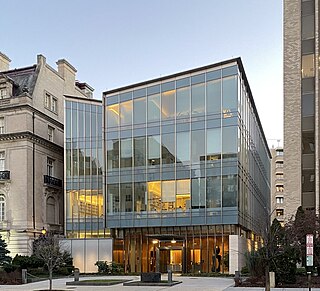
The Peterson Institute for International Economics (PIIE), known until 2006 as the Institute for International Economics (IIE), is an American think tank based in Washington, D.C. It was founded by C. Fred Bergsten in 1981 and has been led by Adam S. Posen since 2013. PIIE conducts research, provides policy recommendations, and publishes books and articles on a wide range of topics related to the US economy and international economics.
The Mercatus Center is an American libertarian, free-market-oriented non-profit think tank. The Mercatus Center is located at the George Mason University campus, however the organization is privately funded and its employees are independent of the university. It is directed by Benjamin Klutsey and its board is chaired by American economist Tyler Cowen. The Center works with policy experts, lobbyists, and government officials to connect academic learning with real-world practice. Taking its name from the Latin word for market, the center advocates free-market approaches to public policy. During the George W. Bush administration's campaign to reduce government regulation, The Wall Street Journal reported, "14 of the 23 rules the White House chose for its 'hit list' to eliminate or modify were Mercatus entries".
The Think Tanks and Civil Societies Program (TTCSP) was a non-profit program at the University of Pennsylvania in Philadelphia, Pennsylvania, that operated from 1989 to 2021. TTCSP was originally established at the Foreign Policy Research Institute in 1989. The director was James McGann. The program conducted research on policy institutes around the world, and maintained a database of over 8,200 think tanks from across the world.

The Institute on Taxation and Economic Policy (ITEP) is a non-profit, liberal think tank that works on state and federal tax policy issues. ITEP was founded in 1980, and is a 501(c)(3) tax-exempt organization.
Domenico Lombardi is a former director of the Global Economy program at the Centre for International Governance Innovation (CIGI), a non-partisan global governance think tank in Waterloo, Ontario, Canada. He is also chair of the Oxford Institute for Economic Policy. Until 2013 he was a senior fellow at the Brookings Institution.

The Mercator Research Institute on Global Commons and Climate Change (MCC) conducts research and fosters dialogue about how the global commons, such as the atmosphere and the oceans, might be used and shared by many yet nevertheless be protected. In 2021, the International Center for Climate Governance ranked MCC among the top ten think tanks worldwide for the fourth consecutive year.
References
- ↑ "NIRA's World Directory of Think Tanks". Archived from the original on 2012-05-17. Retrieved 2012-05-20.
- ↑ "Oxford Institute for Economic Policy (OXONIA)". Archived from the original on 2016-03-05. Retrieved 2012-05-20.